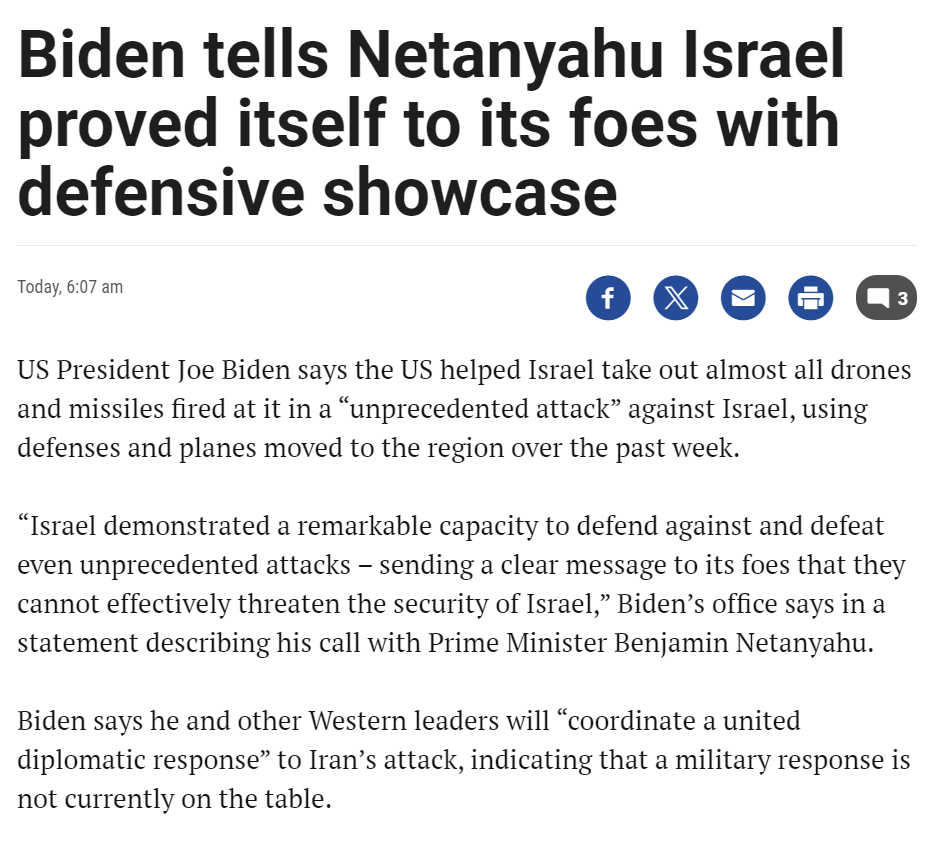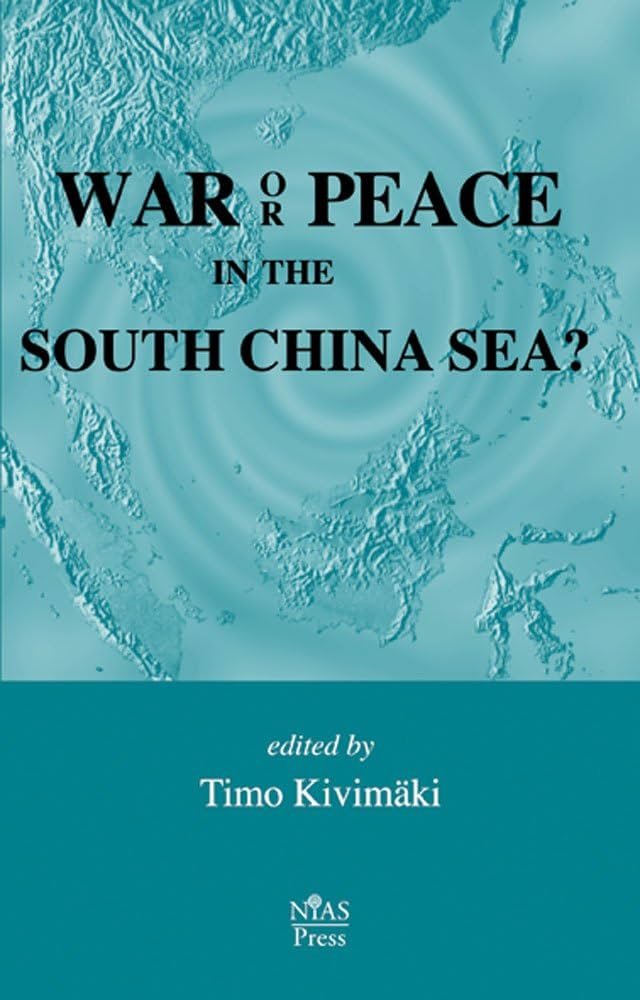As predicted, it now looks pretty much certain the U.S. will leave it at that.
In a rather funny statement Biden says "Israel demonstrated a remarkable capacity to defend against and defeat even unprecedented attacks – sending a clear message to its foes that they cannot effectively threaten the security of Israel." He also said he will “coordinate a united diplomatic response”, meaning no military response (src: ).
Translation: "let's say that Iran's attack on Israel is a win for Israel so we can stop the escalation".
The background is that it seems that Israel did not notify the US ahead of their unprecedented bombing of Iran's consulate (or only at the very last minute). A bombing that was likely a desperate attempt by Israel to provoke retaliation by Iran and force the US to get involved in the fighting on the ground in order to change the whole dynamic of a conflict for which, let's face it, Israel is currently looking at strategic defeat. This is not just me postulating, read for instance Paul Pillar - the US's former top intelligence analyst for the region - saying the exact same thing:
The US saw through this and effectively told Iran "as soon as you give Israel a correction that's proportional to the Damascus strike, you're good to go". Again, this isn't just me postulating, it's literally what they said, see for instance this story from Reuters where a "US official" is quoted as saying "the United States expects an attack by Iran against Israel but one that would not be big enough to draw Washington into war" (). This is in effect the US giving Iran a green light to retaliate proportionally.
Now we can only hope that things indeed remain that way and that Israel doesn't launch yet another attack on Iran...timesofisrael.com/liveblog_entry…
responsiblestatecraft.org/iran-israel-wa…
reuters.com/world/middle-e…
In a rather funny statement Biden says "Israel demonstrated a remarkable capacity to defend against and defeat even unprecedented attacks – sending a clear message to its foes that they cannot effectively threaten the security of Israel." He also said he will “coordinate a united diplomatic response”, meaning no military response (src: ).
Translation: "let's say that Iran's attack on Israel is a win for Israel so we can stop the escalation".
The background is that it seems that Israel did not notify the US ahead of their unprecedented bombing of Iran's consulate (or only at the very last minute). A bombing that was likely a desperate attempt by Israel to provoke retaliation by Iran and force the US to get involved in the fighting on the ground in order to change the whole dynamic of a conflict for which, let's face it, Israel is currently looking at strategic defeat. This is not just me postulating, read for instance Paul Pillar - the US's former top intelligence analyst for the region - saying the exact same thing:
The US saw through this and effectively told Iran "as soon as you give Israel a correction that's proportional to the Damascus strike, you're good to go". Again, this isn't just me postulating, it's literally what they said, see for instance this story from Reuters where a "US official" is quoted as saying "the United States expects an attack by Iran against Israel but one that would not be big enough to draw Washington into war" (). This is in effect the US giving Iran a green light to retaliate proportionally.
Now we can only hope that things indeed remain that way and that Israel doesn't launch yet another attack on Iran...timesofisrael.com/liveblog_entry…
responsiblestatecraft.org/iran-israel-wa…
reuters.com/world/middle-e…

Further confirmation
https://x.com/spectatorindex/status/1779352541735862591
• • •
Missing some Tweet in this thread? You can try to
force a refresh












